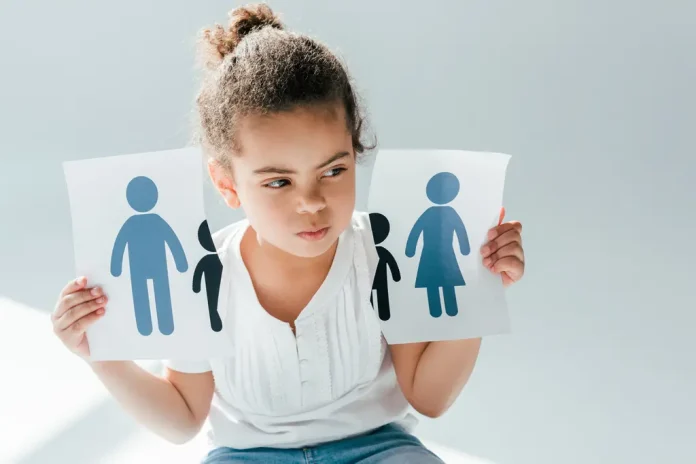Divorce can be a stressful moment for a family. The parents are not just discovering new ways to relate to one another as well as finding new ways to raise their children. If parents divorce, the effects on children may differ. Certain children respond to divorce in a natural and tolerant manner, whereas other children might struggle to adjust.
Children are resilient, and with support, the transition from divorce is often seen as a process of adjustment, not an emergency. As the children who are involved who are divorced differ (different temperaments and different age groups) The effects of divorce for children are different also. FamilyMeans is aware of this and tries to resolve divorce by analyzing what the impacts are on children of all ages.
In this regard Here are some of the most well-known consequences of divorce on children. FamilyMeans can assist parents in managing:
Inadequate academic performance
Divorce can be difficult for everyone in the family. For children, the effort to grasp the new family dynamics could make them confused and distracted. This disruption in their day-to-day focus could mean one of the impacts that divorce has on kids can be observed in their performance in school. Children who are more distracted are more likely they not be able to concentrate on their schoolwork.
Loss of Interest in Interaction with Others
Studies have suggested that divorce could impact children’s social lives. Children whose parents are going through divorce could find it difficult to connect to other children and are likely to be less social. Some children are anxious and are unsure if it’s true that their family is the only one who has been divorced.
Having a Hard Time Changing
In divorce, children may be affected because they must adjust to changes more often and frequently. Changes in family dynamics, changes in living arrangements or homes school, friends, and many more could all affect the children.
Sensitive to Emotions
Divorce can bring a variety of emotional issues to the fore of family members and children are not the same. Anger, sadness as well as anxiety, confusion, and a myriad of other emotions, all can be triggered by this change. Children who divorce may feel anxious and emotional. Children require a way to express their feelings – a person who can talk to them, who is willing to listen and listen, etc. Children may experience the emotional effects of divorce based on how they handle their emotions.
Angry/Irritable
In certain instances, when children are overwhelmed and aren’t sure how to react to the emotions they experience when they divorce, they might get angry or upset. Their anger could be directed towards a broad array of motives. Children who are going through a divorce can exhibit anger toward the parents of their children, themself, acquaintances, and so on. Although for a majority of children, the anger subsides after a few months, if it remains it is crucial to recognize that this could be a lasting impact of divorce on children.
Guilt-ridden Feelings
Children often ask what is causing a divorce within their families. They search for reasons, wondering if parents aren’t as affectionate with each other or if they’ve committed an error. Feelings about guilt can be a frequent occurrence of divorce for children, however, it’s also one that could lead to different issues. The feeling of guilt increases pressure and can cause stress, depression, and other health issues. Giving context and guidance to children to learn about the impact of divorce on them can ease the burden of guilt.
The onset of destructive behavior
When children go through a divorce, conflict that is not resolved could cause future risky situations. Studies have shown that children who experienced divorce within the past twenty years are more likely be involved in crime or rebel with destructive behavior that can harm the health of a child and well-being. More children report that they’ve developed smoking habits or drugs.
A Rise in Health Issues
The divorce process and the effects it has on children can be stressful. It is possible for these problems to cause physical ailments. Children who have been through divorce are more prone to illness, which could be caused by a variety of causes such as their inability to go to bed. Additionally, the signs of depression may be seen, causing more feelings of a lack of well-being and signs of deterioration in health.
Loss of Trust in the Family and Marriage Unit
In addition, even though they hope to be in stable relationships when they are older Studies have also found that children who have had separation are most likely divorce in their personal relationships. Certain studies suggest that this tendency to divorce is at least three times that of children from divorce-free families.
While these are a few possible consequences that divorce can have on kids they aren’t unquestionable, or set in stone. Families are becoming more and more are realizing how difficult it can be to divorce their children as well as for them. Families are turning to support services like those at FamilyMeans and seek assistance in finding a peaceful solution to divorce. By utilizing our collaborative divorce program we’re helping families efficiently navigate this process and for the benefit of the parents as well as for the children affected.





